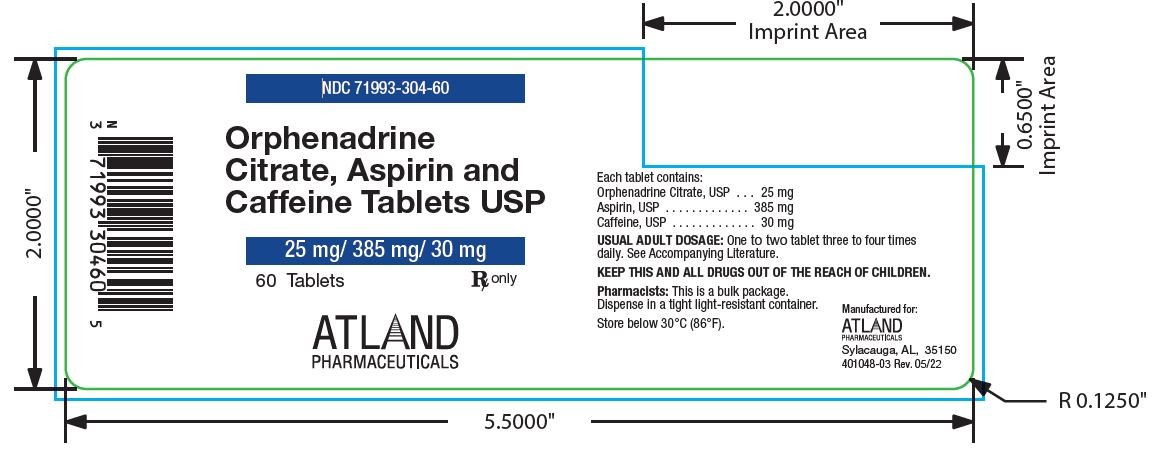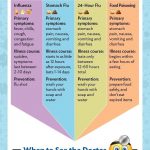
Contents
Orphenadrine/Aspirin/Caffeine – Oral, Norgesic
Medication Uses How To Use Side Effects Precautions Drug Interactions Overdose Notes Missed Dose Storage USES: This medication is a combination of orphenadrine, aspirin, and caffeine. It is used to treat muscle spasms/pain. It is usually used with rest, physical therapy, and other treatment. Orphenadrine relieves pain and muscle spasms. Aspirin relieves pain and decreases swelling. Caffeine may help increase the effects of aspirin on pain. HOW TO USE: Take this medication by mouth as directed by your doctor, usually 3 or 4 times a day. If you have stomach upset while taking this medication, take it with food or milk. Take this medication with a full glass of water (8 ounces/240 milliliters) unless your doctor directs you otherwise. Do not lie down for 10 minutes after taking this medication. The dosage is based on your medical condition and response to treatment. Do not increase your dose or use this drug more often or for longer than prescribed. Your condition will not improve any faster, and your risk of side effects will increase. Use the smallest effective dose. This medication contains caffeine. Avoid drinking large amounts of beverages containing caffeine (coffee, tea, colas), eating large amounts of chocolate, or taking nonprescription products that contain caffeine. Tell your doctor if your condition does not improve or worsens. SIDE EFFECTS: Dry mouth, dizziness, drowsiness, lightheadedness, blurred vision, upset stomach, heartburn, nausea, vomiting, constipation, trouble sleeping, and increased urination may occur. If any of these effects persist or worsen, tell your doctor or pharmacist promptly. To relieve dry mouth, suck (sugarless) hard candy or ice chips, chew (sugarless) gum, drink water, or use a saliva substitute. Remember that your doctor has prescribed this medication because they have judged that the benefit to you is greater than the risk of side effects. Many people using this medication do not have serious side effects. Tell your doctor right away if you have any serious side effects, including: mental/mood changes (such as confusion, anxiety, hallucinations, nervousness, agitation), shaking (tremor), fast/pounding/irregular heartbeat, hearing changes (such as ringing in the ears, difficulty hearing), difficulty urinating, easy bleeding/bruising, fainting, eye pain, unusual tiredness, change in the amount of urine, yellowing eyes/skin, dark urine. This drug may infrequently cause serious (rarely fatal) bleeding from the stomach or intestines. If you notice any of the following unlikely but serious side effects, stop taking this medication and consult your doctor or pharmacist immediately: black stools, vomit that looks like coffee grounds, persistent stomach/abdominal pain. A very serious allergic reaction to this drug is rare. However, get medical help right away if you notice any symptoms of a serious allergic reaction, including: rash, itching/swelling (especially of the face/tongue/throat), severe dizziness, breathing trouble. This is not a complete list of possible side effects. If you notice other effects not listed above, contact your doctor or pharmacist. In the US – Call your doctor for medical advice about side effects. You may report side effects to FDA at 1-800-FDA-1088. In Canada – Call your doctor for medical advice about side effects. You may report side effects to Health Canada at 1-866-234-2345.
PRECAUTIONS: Before taking this product, tell your doctor or pharmacist if you are allergic to orphenadrine, aspirin, or caffeine; or to other nonsteroidal anti-inflammatory drugs-NSAIDs (such as ibuprofen, naproxen, celecoxib); or if you have any other allergies. This product may contain inactive ingredients, which can cause allergic reactions or other problems. Talk to your pharmacist for more details. Before using this medication, tell your doctor or pharmacist your medical history, especially of: high pressure in the eye (glaucoma), stomach/intestine/esophagus problems (such as ulcers, blockage, difficulty swallowing, heartburn), difficulty urinating (such as due to enlarged prostate), a certain type of muscle/nerve disease (myasthenia gravis), asthma (including a history of worsening breathing with runny/stuffy nose after taking aspirin or other NSAIDs), growths in the nose (nasal polyps), bleeding/blood clotting problems (such as hemophilia, thrombocytopenia), gout, heart problems (such as fast/irregular heartbeat, heart failure, heart attack), high blood pressure, kidney disease, liver disease, mental/mood disorders (such as anxiety, nervousness), certain enzyme deficiencies (such as pyruvate kinase or G6PD deficiency). This drug may make you dizzy or drowsy or cause blurred vision. Do not drive, use machinery, or do any activity that requires alertness or clear vision until you are sure you can perform such activities safely. Limit alcoholic beverages. Before having surgery, tell your doctor or dentist about all the products you use (including prescription drugs, nonprescription drugs, and herbal products). This medicine may cause stomach bleeding. Daily use of alcohol and tobacco, especially when combined with this medicine, may increase your risk for stomach bleeding. Limit alcohol and stop smoking. Consult your doctor or pharmacist for more information. This drug contains aspirin. Children and teenagers less than 18 years old should not take aspirin if they have chickenpox, flu, or any undiagnosed illness or if they have recently received a vaccine. In these cases, taking aspirin increases the risk of Reye’s syndrome, a rare but serious illness. Older adults may be more sensitive to the side effects of this drug, especially confusion, stomach ulcer/bleeding, constipation, drowsiness, trouble sleeping, or trouble urinating. Confusion, drowsiness, and trouble sleeping can increase the risk of falling. Aspirin is not recommended for use during pregnancy. Consult your doctor before using this medication if you are or think you may be pregnant. Tell your doctor immediately if you become pregnant or think you may be pregnant while taking this medication. Do not use this medication during the last 3 months of pregnancy because of possible harm to the unborn baby or problems during delivery. This medication passes into breast milk and may harm a nursing infant. Therefore, breastfeeding while using this drug is not recommended. Consult your doctor before breastfeeding.
QUESTION
DRUG INTERACTIONS: Drug interactions may change how your medications work or increase your risk for serious side effects. This document does not contain all possible drug interactions. Keep a list of all the products you use (including prescription/nonprescription drugs and herbal products) and share it with your doctor and pharmacist. Do not start, stop, or change the dosage of any medicines without your doctor’s approval. Some products that may interact with this drug include: mifepristone, vemurafenib. This medication may increase the risk of bleeding when taken with other drugs that also may cause bleeding. Examples include anti-platelet drugs such as clopidogrel, "blood thinners" such as dabigatran/enoxaparin/warfarin, among others. Check all prescription and nonprescription medicine labels carefully since many medications contain aspirin, other NSAIDs (such as ibuprofen, ketorolac), or caffeine. These drugs if taken together with this medication may increase your risk of side effects. However, if your doctor has directed you to take low-dose aspirin to prevent heart attack or stroke (usually at dosages of 81-325 milligrams a day), you should continue taking the aspirin unless your doctor instructs you otherwise. Ask your doctor or pharmacist for more details. Tell your doctor or pharmacist if you are taking other products that cause drowsiness including alcohol, antihistamines (such as cetirizine, diphenhydramine), drugs for sleep or anxiety (such as alprazolam, diazepam, zolpidem), muscle relaxants, and narcotic pain relievers (such as codeine). Check the labels on all your medicines (such as allergy or cough-and-cold products) because they may contain ingredients that cause drowsiness. Ask your pharmacist about using those products safely. This medication may interfere with certain laboratory tests (including dipyridamole-thallium imaging tests, certain urine tests), possibly causing false test results. Make sure laboratory personnel and all your doctors know you use this drug. OVERDOSE: If overdose is suspected, contact a poison control center or emergency room immediately. US residents can call their local poison control center at 1-800-222-1222. Canada residents can call a provincial poison control center. Symptoms of overdose may include: unusual excitement, fast/irregular heartbeat, seizures, rapid breathing, mental/mood changes (such as confusion), change in the amount of urine. NOTES: Do not share this medication with others. This medication has been prescribed for your current condition only. Do not use it later for another condition unless your doctor directs you to do so. A different medication may be necessary in that case. If you are taking this medication for a long time, laboratory and/or medical tests (such as liver/kidney function, blood count) may be performed periodically to check for side effects. Consult your doctor for more details.
MISSED DOSE: If you are taking this medication on a regular schedule and miss a dose, take it as soon as you remember. If it is near the time of the next dose, skip the missed dose and resume your usual dosing schedule. Do not double the dose to catch up.
STORAGE: Store at room temperature away from light and moisture. Do not store in the bathroom. Keep all medications away from children and pets. Do not flush medications down the toilet or pour them into a drain unless instructed to do so. Properly discard this product when it is expired or no longer needed. Consult your pharmacist or local waste disposal company.
Information last revised November 2013. Copyright(c) 2013 First Databank, Inc.
Related Disease Conditions
Lower Back Pain (Lumbar Spine Pain)
There are many causes of back pain. Pain in the low back can relate to the bony lumbar spine, discs between the vertebrae, ligaments around the spine and discs, spinal cord and nerves, muscles of the low back, internal organs of the pelvis and abdomen, and the skin covering the lumbar area.


